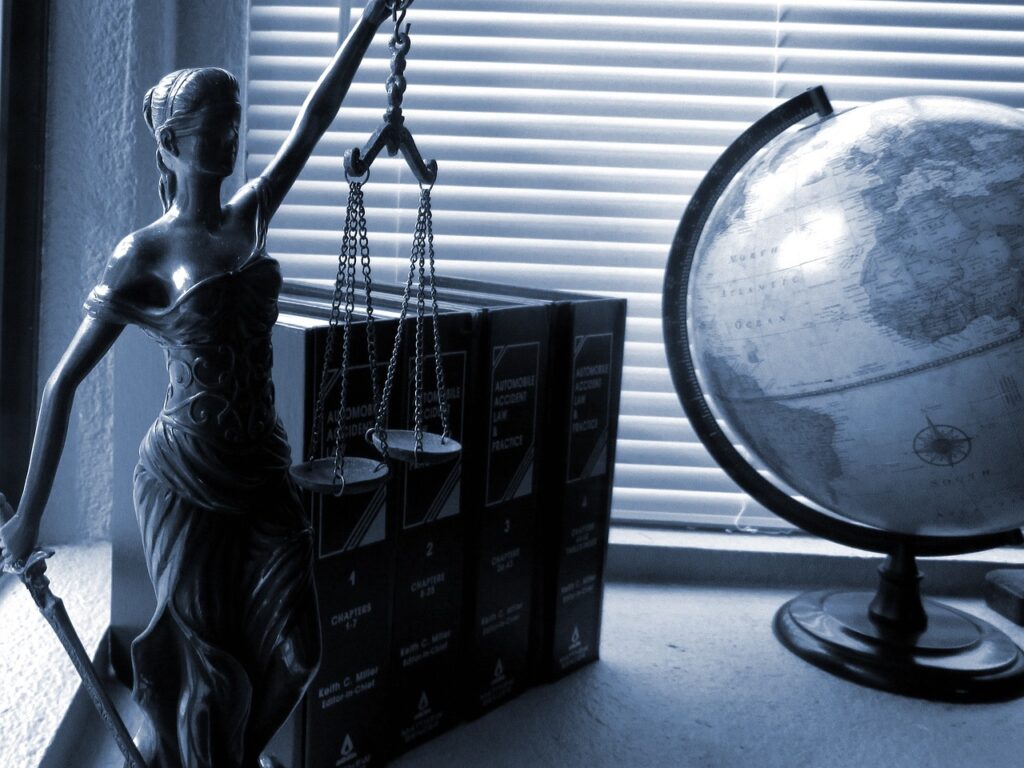In an era where technology advances at breakneck speed, the intersection of law and technology has become one of the most dynamic and challenging areas of legal practice. From artificial intelligence (AI) and blockchain to cybersecurity and data privacy, the rapid evolution of technology presents both unprecedented opportunities and significant legal challenges. Navigating this digital frontier requires a nuanced understanding of how these technologies impact legal principles and how laws must adapt to keep pace.
The Rise of Artificial Intelligence and Its Legal Implications
Artificial intelligence is one of the most transformative technologies of our time. AI systems, from machine learning algorithms to autonomous vehicles, are increasingly integrated into various aspects of society. However, AI’s rise brings complex legal questions.
One of the primary concerns is accountability. When an AI system makes a decision that causes harm or violates a regulation, determining liability can be challenging. Traditional legal frameworks are ill-equipped to address situations where AI operates autonomously. For instance, if an autonomous vehicle is involved in an accident, who is responsible—the manufacturer, the software developer, or the owner of the vehicle?
Additionally, AI systems can perpetuate or even exacerbate biases present in their training data. This raises ethical and legal issues regarding discrimination. For instance, if an AI used in hiring processes systematically favors certain demographics over others, it could lead to legal challenges under anti-discrimination laws.
Blockchain Technology and the Quest for Regulation
Blockchain technology, best known for its role in supporting cryptocurrencies like Bitcoin, has far-reaching implications beyond digital currencies. Blockchain’s decentralized nature offers potential solutions for various legal issues, such as improving transparency and reducing fraud. However, its novel features also pose unique regulatory challenges.
One of the key issues is how to handle smart contracts—self-executing contracts with the terms of the agreement directly written into code. While smart contracts can streamline transactions and reduce costs, they also raise questions about enforceability and jurisdiction. If a smart contract is executed across borders, determining which country’s laws apply can be complex.
Moreover, blockchain’s anonymity features can complicate regulatory efforts, especially in combating illegal activities like money laundering or tax evasion. Regulators are grappling with how to balance the benefits of blockchain with the need for oversight and compliance.

Data Privacy and Cybersecurity: Balancing Innovation and Protection
Data privacy and cybersecurity have become critical issues as more personal and sensitive information is stored and transmitted online. The General Data Protection Regulation (GDPR) in the European Union and similar regulations worldwide represent significant steps toward protecting individuals’ data. However, as technology evolves, so too do the tactics of cybercriminals.
Legal frameworks must address not only the protection of data but also the response to breaches. Companies are required to notify individuals and regulators about breaches, but the specifics of these requirements can vary by jurisdiction. Furthermore, the global nature of the internet means that data protection laws must navigate differing standards and practices across borders.
Emerging technologies like quantum computing pose new threats to data security. Quantum computers could potentially break current encryption methods, leading to concerns about how future legal frameworks will address these risks. The law must evolve to anticipate and mitigate such technological advancements.
Intellectual Property in the Digital Age
The digital age has transformed the landscape of intellectual property (IP) law. The ease with which digital content can be copied and distributed poses challenges for copyright protection. Traditional IP laws, designed before the digital revolution, struggle to address issues like file sharing, streaming, and the unauthorized use of digital content.
For example, the rise of online platforms for sharing music, videos, and software has led to debates over copyright infringement and fair use. The legal system must continually adapt to ensure that creators’ rights are protected while also considering the public’s access to information and cultural products.
Additionally, technology-driven innovations like gene editing and 3D printing have introduced new dimensions to IP law. The question of whether genetic modifications can be patented or how 3D-printed creations fit into existing IP frameworks are just a few of the emerging issues.
Legal Tech and the Transformation of Legal Practice
Technology is not only affecting substantive law but also transforming the practice of law itself. Legal tech, including tools for legal research, case management, and e-discovery, is changing how legal professionals work. Automation and AI are streamlining routine tasks, allowing lawyers to focus on more complex and strategic aspects of their practice.
However, the rise of legal tech also raises questions about the future of the legal profession. As AI systems become more sophisticated, there is debate about the potential for these technologies to replace certain legal roles. Additionally, issues of data security and ethical considerations surrounding the use of legal tech must be addressed.
Navigating the Digital Frontier: The Role of Legal Professionals
As technology continues to advance, legal professionals must stay informed and adaptable. This requires a willingness to engage with emerging technologies and a proactive approach to understanding their implications. Legal education and practice must evolve to incorporate technological literacy and address the unique challenges posed by the digital age.
Collaboration between technologists and legal experts will be crucial in developing effective solutions and regulations. By working together, these professionals can help shape the future of law and technology, ensuring that legal frameworks support innovation while safeguarding fundamental rights and principles.
Conclusion
The intersection of law and technology is a dynamic and evolving field, presenting both opportunities and challenges. From artificial intelligence and blockchain to data privacy and intellectual property, the digital frontier requires careful navigation. As technology continues to advance, the law must adapt to address new issues and ensure that justice and regulation keep pace with innovation. Legal professionals must remain vigilant, adaptable, and collaborative to effectively navigate this ever-changing landscape and shape a future where technology serves the common good while upholding legal and ethical standards.

